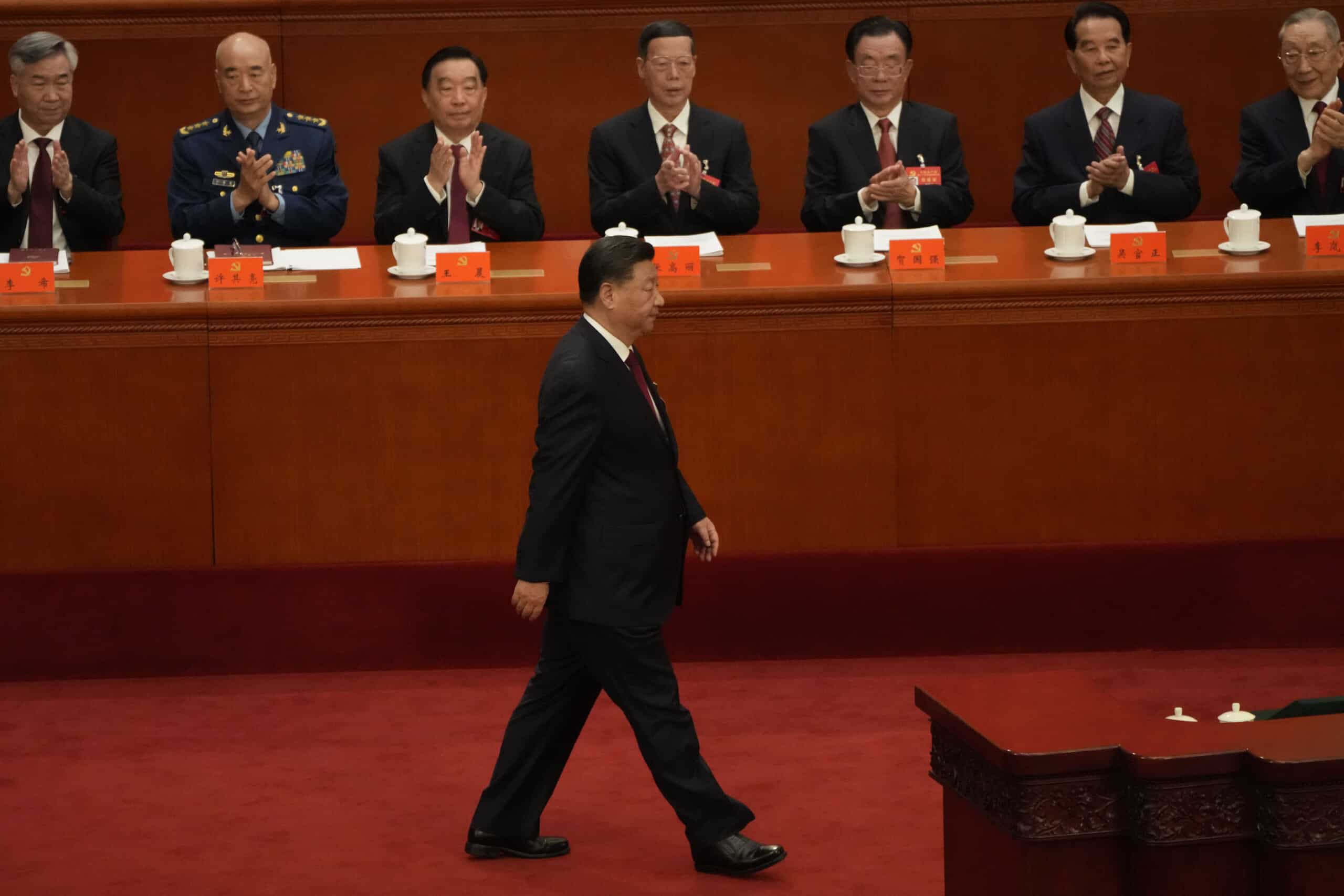
The Chinese Communist Party’s 20th Party Congress kicked off earlier today, October 16. The week-long event is the culmination of months of internal jostling over the Party’s future and its top leadership positions.
The Party Congress is also widely expected to conclude with the awarding of a third term to the Party’s General Secretary, Xi Jinping.1For more on Xi Jinping, listen to an excellent podcast produced by Sue-Lin Wong at The Economist called “The Prince: Searching for Xi Jinping.” Having abolished term limits in 2018, Xi has paved the way for himself to remain in power indefinitely.
Ten years after Xi ascended to China’s top leadership position, the Chinese Communist Party is a party remade. More than at any point in the post-Mao period, it is an organization constructed around personalistic rule, with power consolidated in the hands of a single man.
On the eve of the expected coronation of his third term, The Wire looks at Xi Jinping by the numbers: figures that illustrate Xi’s power and how the country has changed during his decade at the top.
XI IN THE NEWS
“Your July 1 Beijing Journal names some of the ‘princes,’ the children of China’s leaders who are moving up in the Government hierarchy. May I add a few more?” reads a 1992 letter to the editor in The New York Times. It was the first time that Xi Jinping’s name was mentioned in the newspaper; his name would not appear in its pages again until 2006. (The Washington Post profiled Xi in 1992 when he was the top official in Fuzhou, the capital of Fujian Province.) But coverage of Xi has been a staple of The Times since Xi ascended to the country’s top post.

1409
This is the average number of times each year that Xi’s name has been mentioned in The New York Times since 2013, according to data from Factiva, an international news database. That’s ten times the average frequency that China’s premier, Li Keqiang, was mentioned during the same period. For comparison, former president Hu Jintao received on average 196 mentions a year during his time as president and general secretary, from 2003 to 2013.

4.3
Is the average number of times per night over the last year that Xi was mentioned in China Central Television’s (CCTV) evening newscast, Xinwen Lianbo, according to data compiled by MacroPolo, the Chicago-based think tank. The tightly coordinated half-hour program reaches an estimated 130 million viewers every night. There was only one night in the last year where Xi was not mentioned in the news; his mentions in one night peaked at 14, translating to roughly one mention every two minutes.
EXTERNAL INFLUENCE

100
Is the number of overseas trips that Xi Jinping has made since becoming China’s top leader in 2013. Having visited 69 countries, Xi is the PRC’s most traveled leader by a wide margin. His predecessor, Hu Jintao, visited just seven during his decade-long tenure. But after managing roughly a dozen overseas trips a year for the first seven years of his tenure, Xi has all but stopped traveling since the COVID pandemic broke out in 2020. A two-stop trip to Kazakhstan and Uzbekistan last month marked his first steps outside China’s borders since January 2020.
Despite his travels, Xi has been unable to stop the downward spiral in overseas public opinion about his leadership.

76 percent
Is the percentage of respondents who are pessimistic about the prospect that Xi will do “the right thing regarding world affairs,” according to a recent survey of 19 countries (largely in North America and Europe) by the Pew Research Center.
TIGERS AND FLIES
Xi Jinping came to power pledging to clean up the corruption that was rampant within the Communist Party. He vowed to crackdown on “tigers and flies,” high ranking officials and lowly bureaucrats who violated the Party’s rules and engaged in bribery and other corrupt activities.

4.71 million
Is the number of CCP members who have been investigated for violating party rules since Xi Jinping assumed the Party’s top position in 2013, almost 5 percent of all Party members. About 644,000 members have been disciplined during the same period, according to state news agency Xinhua.
Xi’s anti-corruption campaign has also been instrumental to his consolidation of power.

35
Is the number of members of the CCP’s Central Committee — the group of 376 Party members (full and alternate) that formally make up the Party’s “highest organ of authority” — who were disciplined during Xi’s first term as president and general secretary, from 2012 to 2017. That’s as many as were disciplined between the establishment of the People’s Republic in 1949 and 2012. Their dismissals, combined with mandatory retirements and additional departures, resulted in a huge turnover of seats in the Central Committee in 2017, when more than two-thirds of its members were replaced.
Just four Central Committee members have been disciplined during Xi’s second term.
INTERNAL INFLUENCE
6.42 million
Is the number of copies of the book, “Xi Jinping: The Governance of China,” that sold as of September 2017, near the end of Xi’s first term in office. China’s State Council touted the book, saying it had been translated and sold in 21 languages across 160 countries and regions, making it the “most popular book by a Chinese leader since… reform and opening up in 1978.”
Data on book sales over the course of Xi’s second term are harder to come by. Perhaps that’s because state propagandists have shifted their focus to a different platform: in the mobile era, Xi Jinping’s teachings are spread by app, not by book.

180 million
Is the number of people who have downloaded 学习强国 Xuexi Qiangguo, an Alibaba-built app that teaches Xi Jinping Thought, on Android. About 53 million have downloaded it on Apple’s iOS, according to Sensor Tower, an analytics firm. It’s unclear how many users are on the app by choice. Many government bureaus, schools and state-run companies have required employees and students to use the app regularly, which gamifies Xi’s teachings and awards users points for participation.
The app reached the number one position in mobile app stores in 2019, but since then usage seems to have slumped. Some users have sought creative workarounds to meet their learning requirements. An unsanctioned program available on Github, for example, briefly allowed users to cheat their way to their daily scores.
DON’T SAY HIS NAME

35,467
That’s the number of different phrases that are banned by the Cyberspace Administration of China, the country’s top internet censor, when mentioned in relation to Xi Jinping, according to a leaked list published by China Digital Times (CDT), a website that monitors Chinese internet controls. Words which make it onto the list range from the vulgar to the creative, and include thousands of pairings of Xi’s name with words and events that carry negative connotations.
The list isn’t exhaustive. “Words on this list make up the base level of censorship,” says Xiao Qiang, a research scientist at the University of California, Berkeley and CDT’s founder. “It’s then up to internet companies to come up with an additional list [of Xi-related words], while implementation is enforced by the police and the CAC.” Government censors hence set the agenda for what to censor, while outsourcing the details and execution to private firms.

Eliot Chen is a Toronto-based staff writer at The Wire. Previously, he was a researcher at the Center for Strategic and International Studies’ Human Rights Initiative and MacroPolo. @eliotcxchen



